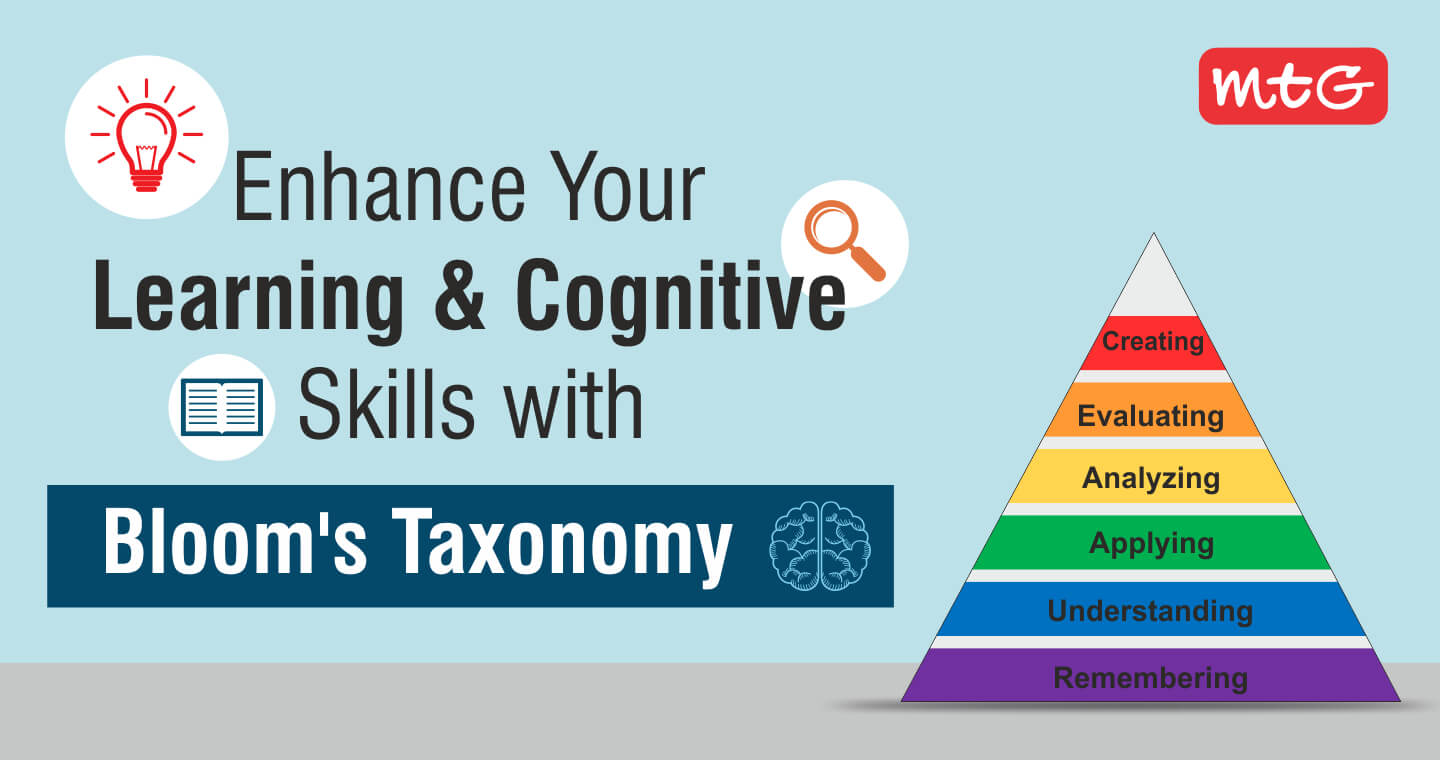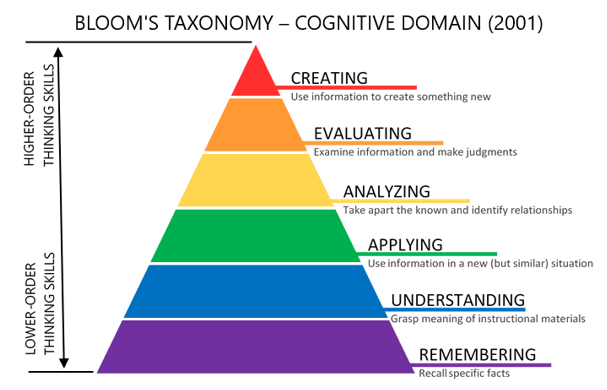
Education has long been regarded as the key to unlocking a brighter future. The primary goal of education is to foster lifelong learning and equip students with essential skills for the challenges ahead. One tool that has revolutionized the way we approach education is the New Bloom’s Taxonomy. Let’s explore what Bloom’s Taxonomy is, delve into its six dimensions, and discuss how incorporating these dimensions can benefit students’ learning outcomes.
Latest – Top 5 Discoveries by James Webb Space Telescope
What is the Bloom’s Taxonomy?
Developed by educational psychologist, Benjamin Bloom in 1956, the original Bloom’s Taxonomy provided a framework for classifying cognitive skills into six hierarchical levels: knowledge, comprehension, application, analysis, synthesis, and evaluation. Over time, this framework has evolved into the Bloom’s Taxonomy we use today, focusing on the cognitive process as well as the knowledge itself.
The Bloom’s Taxonomy we use now is a revised version of the original Bloom’s Taxonomy, which was created by Benjamin Bloom. The taxonomy is designed to classify educational objectives and promote higher-order thinking skills in students. The revised Bloom’s Taxonomy aligns Bloom’s original framework with the needs of the 21st-century learner.

Need Help in Memorizing something fast? – How to Memorize Something Fast | 10 Ways to Memorize Fast
The Six Cognitive Skills of Revised Bloom Taxonomy
1. Remembering
The first level of Bloom’s Taxonomy, “remembering” involves recalling information or concepts from memory. This dimension asks students to retrieve previously learned information, such as vocabulary terms, facts, or definitions. Remembering is crucial as it forms the foundation upon which higher-order thinking skills are built.
2. Understanding
The dimension – “Understanding” focuses on grasping the meaning and comprehension of previously remembered concepts or ideas. By explaining concepts in their own words or describing relationships between ideas, students demonstrate their understanding. This dimension enables learners to make connections and gain a deeper insight into the subject matter.
3. Applying
The third level – “Applying” involves employing learned knowledge and skills in new or unfamiliar situations. By applying concepts in real-world scenarios or solving problems using acquired skills, students develop a practical understanding of their learning. This dimension encourages critical thinking and the ability to transfer knowledge to different situations.
4. Analyzing
‘Analyzing” requires students to break down complex ideas into their basic parts and understand the relationships between them. By examining the underlying principles or components, students can explore patterns, evaluate facts, and identify trends. This dimension fosters higher-level thinking and the development of critical analytical skills.
5. Evaluating
“Evaluating” involves making informed judgments or decisions based on given criteria or information. Students must assess the validity, relevance, or quality of information, arguments, or solutions. By developing a sense of objectivity, learners become critical thinkers who can make well-reasoned judgments and form their own opinions.
6. Creating
Creating is the highest-order thinking dimension where students demonstrate originality and apply knowledge to generate new ideas. By designing, constructing, or combining elements in unique ways, students showcase their creativity and innovation. This dimension encourages learners to become active participants in their own learning and contribute to the creation of new and original ideas.
Unlock Brain Power – Unlock The Brain Power and Retain 90% of What You Learn
How Bloom’s Taxonomy Can Improve Learning ? 💡
- Enhancing critical thinking skills
Unlike traditional education which focuses primarily on knowledge recall, Bloom’s Taxonomy encourages students to develop critical thinking skills. By challenging them to analyze, evaluate, and create ideas, students can effectively apply what they have learned to real-world situations.
- Encouraging deeper understanding
Through Bloom’s Taxonomy, students are encouraged to move beyond surface-level understanding. Instead of merely memorizing facts, they are prompted to demonstrate comprehension, make connections, and develop a deeper understanding of complex concepts. This approach facilitates long-term retention and better retrieval of information.
- Promoting creativity and problem-solving abilities
Bloom’s Taxonomy places a strong emphasis on higher-order thinking skills such as evaluation and creation. By engaging students in problem-solving activities and encouraging them to think critically, they become more capable of tackling challenges creatively. This prepares them for the dynamic and ever-changing world outside the classroom.
- Fostering student engagement
By incorporating Bloom’s Taxonomy into the curriculum, educators can create a more interactive and participatory learning environment. Students become active participants in learning, utilizing various cognitive skills to construct their understanding and express their thoughts.
- Preparing students for success in the 21st century
In today’s rapidly evolving society, the ability to think critically, solve problems, and adapt to new situations is critical for success. It equips students with these essential skills, ensuring they are prepared to face the challenges of higher education, the workplace, and beyond and become well-rounded adults.

Have you checked our – 10 Funny Math Memes for Students That Will Make You Go ROFL!
Bloom’s Taxonomy empowers students by shifting the focus from mere knowledge acquisition to the development of essential cognitive skills. By stimulating critical thinking, enhancing comprehension, promoting creativity, and fostering responsibility, this taxonomy offers a comprehensive approach to education. It is essential to recognize the transformative impact of Bloom’s Taxonomy and contribute to creating educational materials that align with its principles. Let’s equip students with the tools they need to thrive in an increasingly complex world.































